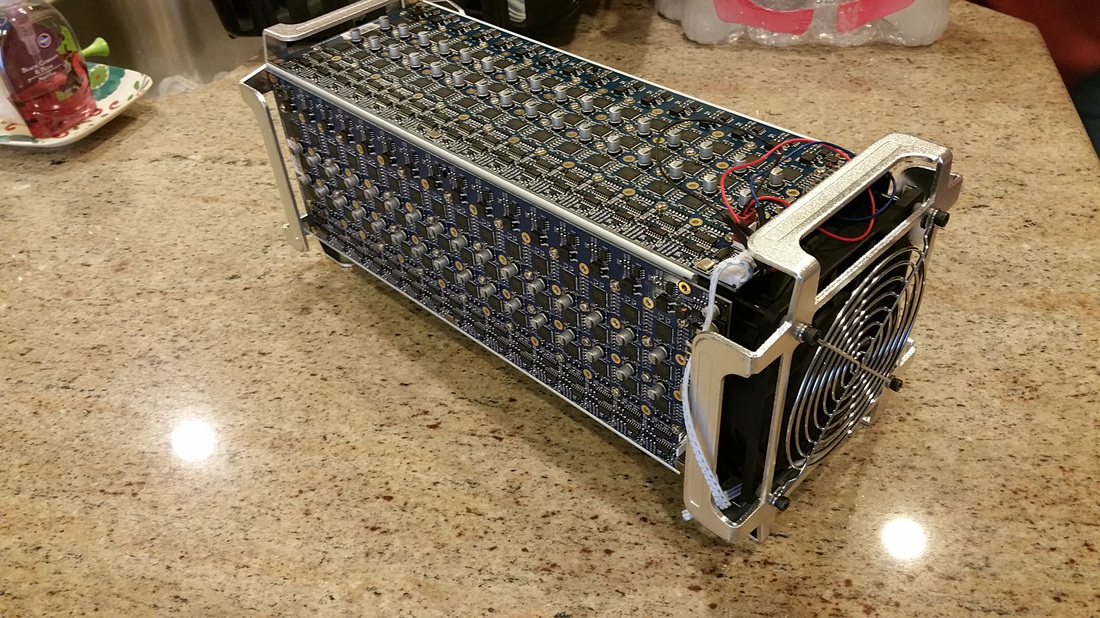The shipping gods were oddly violent and benevolent at the same time. The box was badly squashed yet thankfully ASICMiner packed it with a foam box inside. Even though one of the frame ears was bent the Prisma worked perfectly out of the box. The Prisma is built like a tank just like the Tube.
The Prisma blows air into the heatsink tunnel using a very loud fan. At times, the fan was hitting 80 dB while in a room with an ambient temp of 73-degrees F at 4 feet. When moved to the mining room with an ambient temp of 50-degrees F at 4 feet it quieted to 72 dB. The Prisma is louder than the Spondoolies SP30.
We did not see any fan speed control in the firmware of the BE200 controller. The BE200 controller is back on the Prisma with that same firmware. The Prisma should be preset to a freq of 240; if not, make sure that you set it to 240 before connecting the Prisma. That way the Prisma is not damaged by the freq being too high. The BE200 has not been updated officially yet to have failover pools, and the stratum bug is still there from the Tube and the T1 that also shipped with this controller. There is supposed to be an update on the way that will allow for failover pools and better stratum compatibility. There is also a USB adapter on the way so that the Prisma, Tube, and T1 can be used with an RPi or Windows.
Brief
ASICMiner Prisma is based on a proprietary X48 design for BE200. It greatly reduces power
consumption of the device per GH/s compared to the X24 design.
It takes the same cooling structure and similar form factor as the ASICMiner Tube,
while being even more efficient and compact. Also, we added cgminer support on Raspberry PI.
Spec
Hashrate: 350-370GH/s per hashing unit in normal mode, 1400-1480GH/s per full device.
Power consumption: ~0.67 W/G board-wise. On-wall power consumption relies on PSU
efficiency. (typically 1050-1100 W per full device, 0.75-0.78 W/G)
Size: 35cmx12cmx12cm per full device.
Weight: 7.5kg per full device.
Powering: One 6pin PCI-E plugs per hashing unit.
The hashing units are driven by ethernet controllers. It can also be driven by cgminer on Raspberry PI.
Each ethernet controller or Raspberry PI can run up to 32 units.

 RSS Feed
RSS Feed


